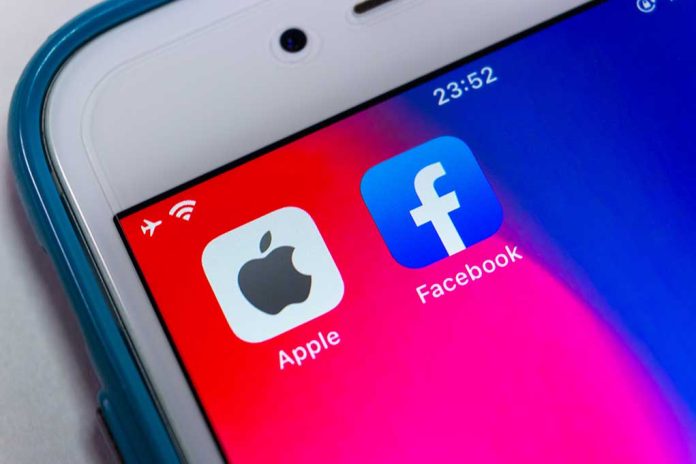
Apple’s iron grip on app store payments has been shattered as the U.S. Court of Appeals rejects their plea to halt a court order allowing developers to bypass Apple’s fee-heavy payment system.
Key Takeaways
- A San Francisco federal appeals court denied Apple’s request to pause an order allowing developers to direct users to alternative payment methods outside the App Store
- The ruling found Apple engaged in anticompetitive conduct by forcing developers to use its in-app payment system that charges up to 30% commission
- Major developers including Epic Games, Amazon, and Spotify have already begun implementing changes to bypass Apple’s payment system
- Judge Yvonne Gonzalez Rogers has referred Apple to federal prosecutors for a possible criminal probe of contempt of court
- The decision represents a significant blow to Apple’s App Store business model, which has been a major revenue generator for the tech giant
Court Delivers Crushing Blow to Apple’s App Store Control
In a significant victory for app developers, the U.S. The Court of Appeals in San Francisco has denied Apple’s request to pause a court order that allows developers to bypass the tech giant’s in-app payment system. “The ruling, which stems from a 2021 injunction issued” said Yvonne Gonzalez Rogers,U.S. District Judge. found that Apple had engaged in anticompetitive conduct under California law by forcing developers to use its payment system and charging commissions of up to 30%. This decision strikes at the heart of Apple’s lucrative App Store business model and represents a major win for companies like Epic Games, which has been fighting Apple’s policies for years.
$20 billion annually from Apple app store fees going away. Prepare for a decline in earnings for Apple. https://t.co/GAAJYtqHne
— PJK (@pjklife) May 5, 2025
Developers Celebrate as Apple’s “Tax” Faces Elimination
The court’s ruling has immediate implications for the app ecosystem, with major developers already adjusting their strategies to take advantage of the new freedom. Epic Games, Amazon, and Spotify have quickly implemented changes to their apps, offering users alternative payment options that bypass Apple’s commission structure. Epic CEO Tim Sweeney has been particularly vocal about the victory, celebrating what he called the end of the “Apple tax” that has long forced developers to share a significant portion of their revenue with the tech giant. This shift in policy could potentially save developers billions in fees annually and allow them to offer lower prices to consumers.
Apple’s Legal Troubles Mount as Judge Refers Case to Prosecutors
Apple’s defeat in court comes with additional complications as Judge Gonzalez Rogers has referred the company to federal prosecutors for a possible criminal probe of contempt of court. This extraordinary step follows Apple’s attempts to circumvent the original 2021 injunction by implementing new policies that still imposed a 27% commission on developers who directed users to external payment options. The judge’s dissatisfaction with Apple’s compliance efforts highlights the gravity of the situation for the tech giant, which now faces not only the loss of significant revenue but potentially criminal consequences for its actions in response to the court’s original order.
Implications for Apple’s Business Model and Digital Marketplace
Apple has expressed deep disappointment with the court’s decision and plans to continue its legal battle. The company has long defended its “App Store policies” as necessary to maintain security, privacy, and quality for users. However, the ruling challenges this narrative by suggesting that Apple’s primary motivation may be financial rather than protective. With the App Store generating billions in revenue annually, the potential impact on Apple’s bottom line could be substantial if developers widely adopt alternative payment methods. This shift may force the tech giant to reconsider its entire approach to app distribution and monetization.
Victory for Free Market Principles in Tech
This ruling represents a significant victory for free market principles in the digital economy. By breaking Apple’s monopolistic control over in-app purchases, the court has opened the door to greater competition, innovation, and consumer choice. Developers will now have the freedom to build direct relationships with their customers without a powerful gatekeeper extracting excessive fees from every transaction. For conservative advocates of free markets, this decision aligns with core principles of limited interference in private business dealings and the removal of artificial barriers to competition. As the digital marketplace continues to evolve, this ruling may be remembered as a pivotal moment in establishing more equitable rules for the app economy.





